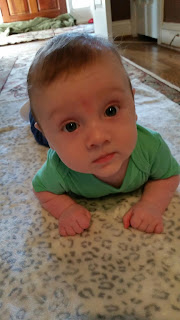I love finding ways to be more effective and efficient. Much of this inspiration has come from following Tim Ferriss' work. If its something that "tickles your fancy" as well, I would highly recommend reading The 4 hour Workweek, 4 Hour Chef, 4 Hour Body and his podcast.
Much of his content centers around experimentation across various disciplines to extrapolate the elements that make top performers so successful. I've been able to implement a lot of this in my training, career and day-to-day life.
Basically if you do something long enough, trends emerge. By analyzing these trends (ones that work and ones that don't) you can determine what particular behaviors and actions yield the best results.
One of my big takeaways has been embracing the necessity of experimentation. I'm a bit of a perfectionist, so its hard for me to let go of trying to get it right the first time. Stop overthinking and just do it already! Just use a little common sense of course.
We learn the most from getting out there and screwing up a bunch of times first. If success was measured solely by the number of times one crashes and burns, I'd probably be sitting up there with Mark Zuckerberg and Joe Francis by now. Surprising I hadn't caught on to this a little earlier.
To be fair, I've embraced and had success with much of this when it comes to training and nutrition, but I did a lot of dumb stuff for a lot of years before I saw the success I wanted. Probably from age 14-25 if I'm being completely honest with myself. I'm just surprised I haven't applied more of it in other areas of life.
If I were to give one piece of advice on how to make this work for you, it would be this:
WRITE SHIT DOWN
Like, a lot of shit. Your training log, nutrition, thoughts, feelings, behaviors, activity at work, whatever. There's no way you will know what works best until you have gathered a decent amount of data to draw conclusions from.
Now do I write everything down? Hell no. I'm not a lunatic. I don't have time for all that, but I am diligent about my training log and keeping a journal. This gives me a good amount of data to pull from. Plus its good to get it all on paper so it's not floating around upstairs.
Practical fitness example: Lets say you trained hard for 12 weeks and your squat went up 30 pounds. A smart person would have kept a fairly detailed training log the entire time. If you didn't, you have no data to determine how you accomplished this. So how will you replicate this to continue getting those "gainz"?
Same thing with nutrition. If you lost or gained 20lbs depending on your goal, how will you continue that if you didn't keep some kind of food and activity log?
This isn't anything revolutionary. Its just science, yo. So start writing some stuff down. Log your data, analyze it, and draw some conclusions.
Now for this week's training.
Training Log
Sunday - Full Body
1A. Handstand holds - 3x60sec
1B. Front Levers - 3x10sec
2A. KB Swing - 60# x4x20
2B. Suspension Push Ups - 4x15
3A. Suspension Rear Foot Elevated Split Squat (RFESS) - 3x20
3B. Chin Ups - 15, 10, 5
4A. Suspension Tricep Ext. - 3x10-15
4B. Toes to Bar - 3x10
Tuesday - Lower Body
1. Deficit Deadlift (3")
135x5
225x5
275x5
315x5
3x5 @ 355
2. Front Squat
3x10 @ 175
175 w/ 5 sec pause x 5,3,2
3A. Back Raise - 3x20
3B. RKC Plank
Friday - Upper Body
1. Slingshot Bench (*no slingshot)
45x10*
135x8*
185x6*
225x4*
245x5*
285x3
315x5
315x3,2 (cluster)
2. DB Bench - 80x4x10
3A. Incline Chest Fly - 2x15
3B. Neutral Chins - 4x8
4. Wide T-bar row - 2x12
5A. Straight Leg Dead Bugs - 3x10 each
5B. Reverse Curl - 3x12







